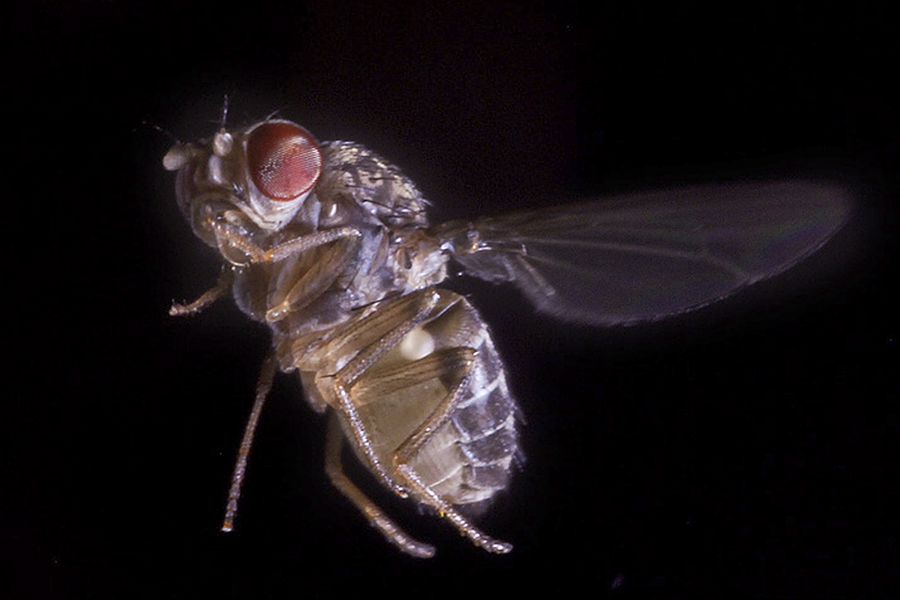Flies time when they’re having fungus, say scientists
Loading...
The perception of time is a trait we strongly associate with humanity. But what if chimpanzees, or dogs, or even insects had a sense of past, present, and future?
According to new research by German neurobiologist Martin Heisenberg, fruit flies do. After encountering sugary rewards paired with different odors – cigarettes in the morning and fungus in the afternoon – Dr. Heisenberg's flies eventually learned to distinguish time. A new study, published today in Current Biology, describes the findings.
Fruit flies, which belong to the genus Drosophila, make excellent subjects for studying the neural correlates of behavior. Because their brains are so simple, biologists can more easily connect fly behaviors with the neural pathways that cause them. And since time perception is inherently complex, Heisenberg started small, with the fruit fly.
For two days, Heisenberg and his colleagues trained their flies. In the morning, they offered sugar along with ethyl acetate, an organic compound used in cigarettes and glues. In the afternoon, sugar with 3-octanol, which is found in some fungi. On the third day, they gave the flies a choice of both scents, but only the time-appropriate scent would yield a reward.
Some flies – ones that lacked known “clock genes” – were able to develop a preference for certain scents, but could not form an association between odor and time. But for the most part, the flies chose correctly. Even in constant darkness, they could distinguish between morning and afternoon. But upon swapping a normal light-dark cycle for constant light, Heisenberg found that the flies lost their ability to keep time.
“Most organisms have an endogenous clock to organize their behavior over the day,” Heisenberg says. “Why the biological clock does not work in constant light is not well understood. There may be only a mechanistic reason. Such a condition may be too rare in nature, except in modern civilization.”
If the humble fruit fly has a sense of time, it’s possible that other complex organisms have the same ability.
“Most organisms have the circadian clock,” Heisenberg says, “but only for a few of them has it been shown that they can learn a particular time of the day. Of the animals for which this has been shown, the fly now is the one with the smallest brain. In addition to [genetic investigations], this may help us find out how they do it.”
New research suggests that many “human” traits, like time perception, could be more common in the animal world than we thought. Another recent study in Current Biology describes how fruit flies can experience the “building blocks” of fear, and possibly other emotions. It could be that fruit fly brains, simple as they may be, aren’t so different from our own.
“As with time-learning – and fear, aggression, sleep, pain, vision, attention, addiction, etcetera – brains are brains,” Heisenberg says. “What we learn about the fly will help us understand the corresponding problems in humans.”








